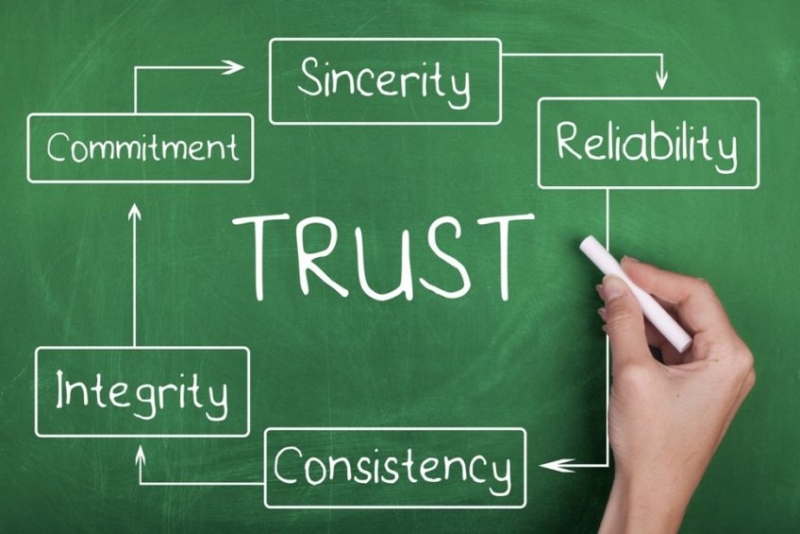Integrity, Credibility and Consistency
Leading with integrity is a fundamental aspect of building credibility. A leader’s credibility is vital to creating an environment which delivers consistent collective results. In this trusting environment, people within the enterprise will be enthused, energized and empowered because their work lives are enriched.
The World Economic Forum tells us 86 per cent of the 1,500 world’s foremost global leadership-experts believe the world is currently experiencing a leadership crisis (Outlook on the Global Agenda). We are bombarded daily with stories of corruption, bribery and no less damaging, a total lack of consistency, credibility and integrity from leaders, be they in commerce or politics. Abusive narcissistic business-leaders and politicians, enriching themselves at the expense of others, create high levels of insecurity and anxiety amongst employees, customers, suppliers and citizens alike.
We hear stories of would-be world-leading politicians, who have built their personal fortunes by lying, stealing and not paying their debts. They destroy smaller organizations which are led by people who foolishly trusted in the integrity of the individual they were entering into a business relationship with, wrecking their own companies and the lives of their employees. Sociopathic, narcissistic leaders lack integrity.
Without any form of long-term perspective, only driven by lining their own pockets, they damage an enterprise’s reputation, employee morale at the organization, dismantle supplier-chain trust and ultimately negatively impact on performance by un-doing customer-relations. Employee morale undoubtedly drops when enterprises are led by bullies who act inconsistently and cheat their way to personal-success, lining their own pocket.
Palpable integrity, credibility and consistency emanating from the organisation’s leadership protects the longer-term health of the enterprise and sustains longer-term growth. Organizations led by people with a positive reputation are key intangible assets. They are as important as the services or products delivered for customers. But this reputation-building requires investment. Leaders with integrity do the right thing in a reliable way.
Having strong moral principles, behaving in private as one would in public, is quickly recognized by all who come into contact with a consistent, reliable leader. Such leaders focus on achieving self-direction and self-motivation necessary to positively affect their own performance, exploring their own weaknesses and finding ways to improve what they do. This requires influencing themselves after introspectively managing, regulating and amending their own behaviour.
Such an approach can only be entered into if the leader is intrinsically motivated to improve themselves and their employees’ actions. Such leaders will often take counsel from a consultant, mentor or executive-coach; someone who has the knowledge, experience, skills and training to aid in this process. The best of these advisors are committed to creating a sustainable approach to improving not only the leader but also employees.
Through a wide-ranging focus on people and productivity, improving the overall performance of the enterprise is core to this approach; improving interactions between people delivers more effectively for the organization. A leader who is self-aggrandizing, inconsistent and ‘flip-flops’ with sudden changes of direction will create anxiety and fear, which will undoubtedly damage organization-performance.
For employees to be empowered they need to trust their leader who creates a safe-framework for them to deliver. Employees are much more likely to be imagining-implementers who release their creativity if they feel safe within the enterprise. An approach based on a servant-leader attitude will ensure the enterprise is seen to be run with integrity, credibility and consistency; where employees, suppliers and customers come first, where there is zero-tolerance of bribery, corruption, lies, theft and unethical behaviour, where the leader is seen to cling to a moral code where values matter.
Related Posts

